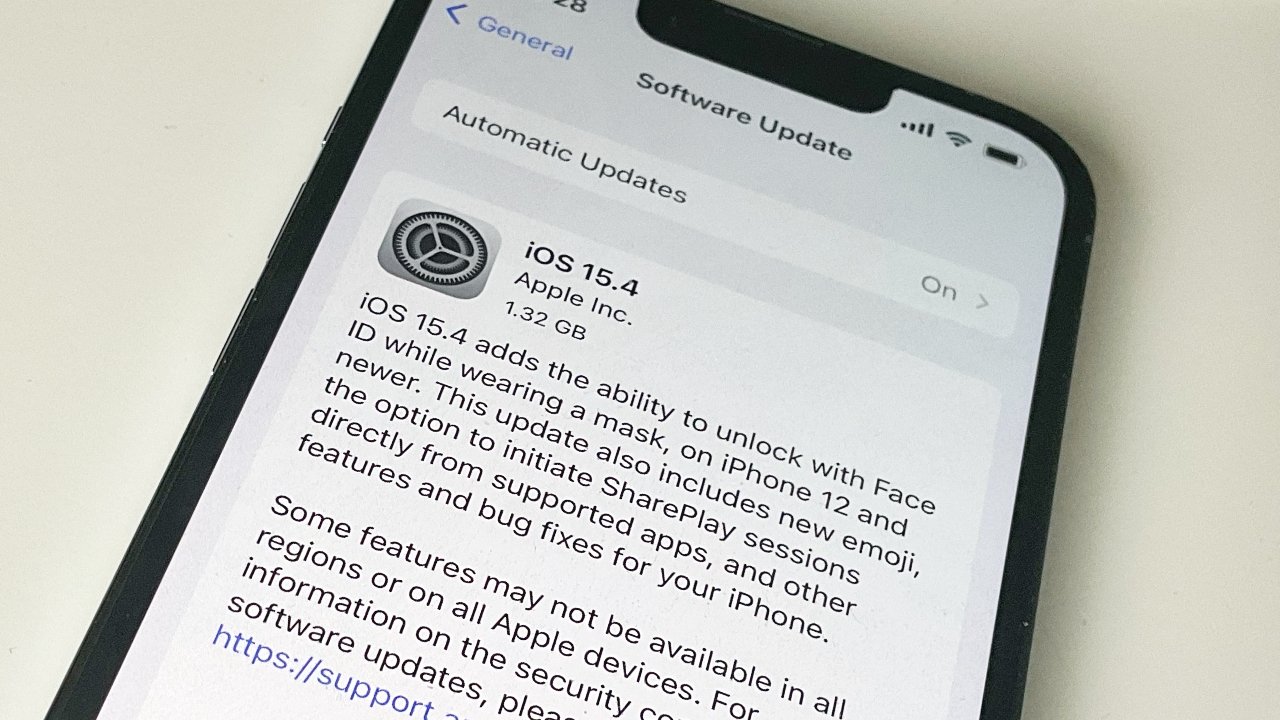Apple's Craig Federighi has outlined how the company handles rolling out of automatic updates to iOS, including why it can take weeks to work.
Reddit user Mateusz Buda reports emailing Apple's senior vice president of software engineering, Craig Federighi. He was asked about iOS auto-updates since Buda's iPhone had not updated itself two weeks after the release of iOS 15.4.
"We incrementally rollout new iOS updates," replied Federighi, "by first making them available for those that explicitly seek them out in Settings, and then 1-4 weeks later (after we've received feedback on the update) ramp up to rolling out to devices with auto-update enabled. Hope that helps!"
There is no further detail over what delays a widespread auto-update from one to four weeks, but it suggests Apple is conscious that bugs can be found even after beta testing.
To receive automatic updates, go to Settings, General, Software Update, and tap Automatic Updates to on.
Even with that enabled, users do not have to wait for the automatic download. They can still manually go into Software Update and tap to have the iPhone search for, and download, any new update.
 William Gallagher
William Gallagher








 Marko Zivkovic
Marko Zivkovic
 Christine McKee
Christine McKee
 Andrew Orr
Andrew Orr
 Andrew O'Hara
Andrew O'Hara


 Mike Wuerthele
Mike Wuerthele
 Bon Adamson
Bon Adamson


-m.jpg)



17 Comments
It’s a reasonable form of server network bandwidth management.
Is it the same with app updates? I’ve never had a app auto update,then I check manually and have 20 updates available
Didn’t know auto-update has a wait-and-see pause built in. Thats certainly what I do with manual updates, to varying degrees. It’s both brilliant and somewhat amusing that Apple itself also takes the ‘no, you go first’ approach.